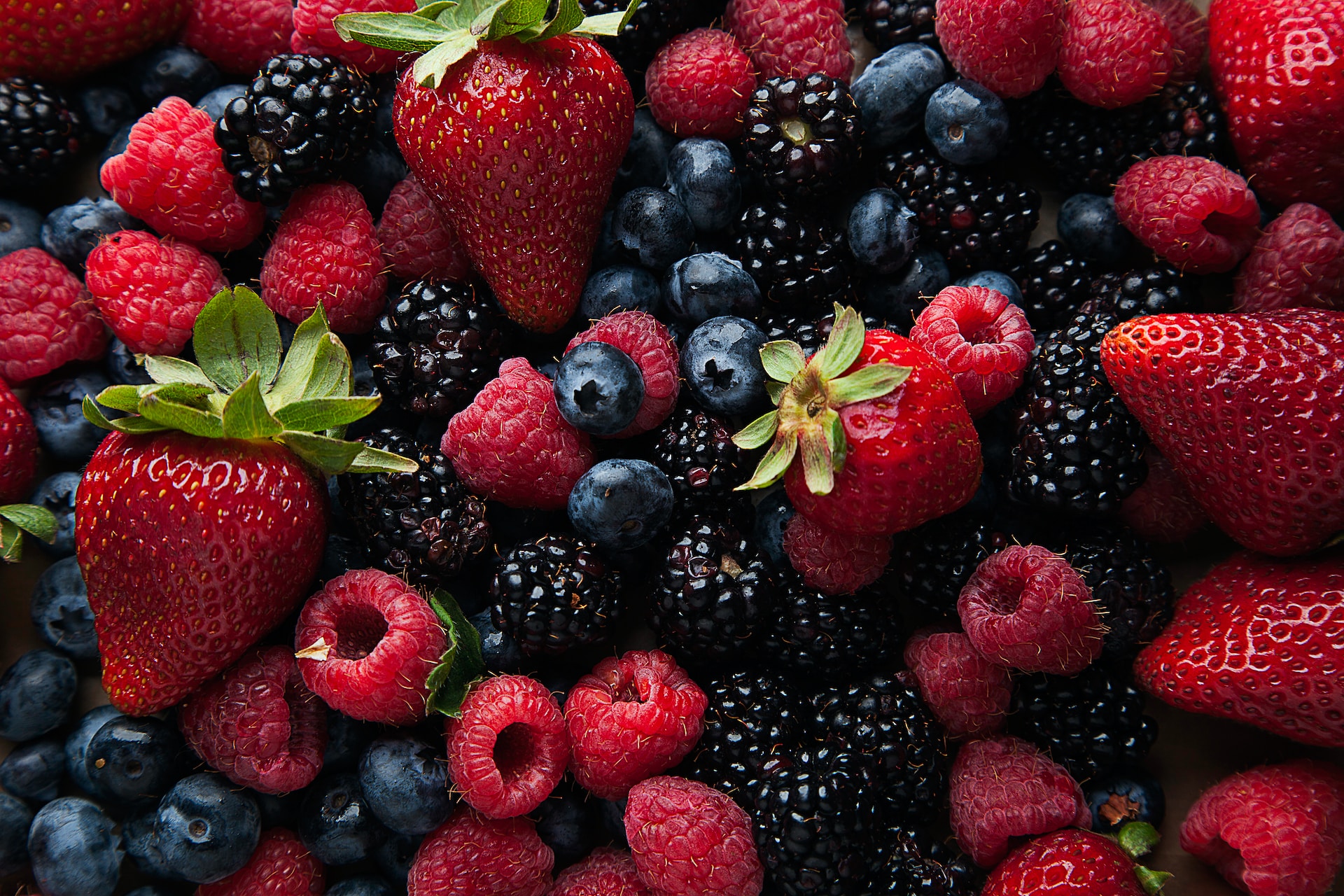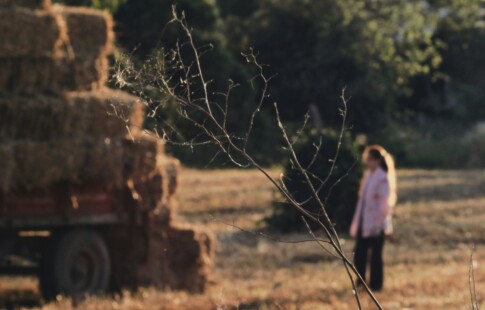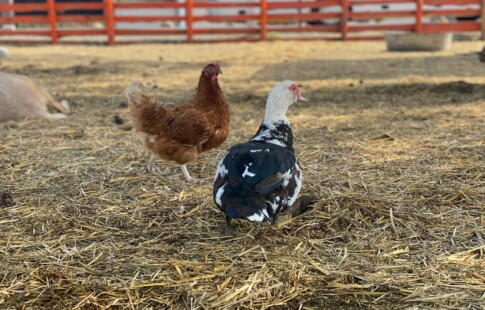
Why You Should Wash Fruit Before Eating It
We are reader-supported. When you buy through links on our site, we may earn affiliate commission.
Fresh produce is a great source of vitamins and minerals, and it’s an important part of a healthy diet. But, before you bite into that juicy apple, take a minute to rinse it off. Here’s why you should always wash fruits and vegetables.
Washing Produce Removes Bacteria and Pests
Fruit travels a long way from farm to table, and many people handle it in the process. The most important reason why you should wash fruit and other produce is that it often has bacteria on it. The bacteria can come from the soil, people’s hands, or animals defecating on it in the field. Agricultural runoff from surrounding farms may also contain manure that gets on the fruit.
Bacteria like Listeria, E. coli, and Salmonella on unwashed produce can cause foodborne illness, also called food poisoning. Washing fresh fruits and vegetables rinses off the bacteria.
Once in the store, fruit typically sits out in the open where insects or rodents may walk on it and defecate on it. Leafy greens may have pests like caterpillars munching on them. Although it probably won’t hurt you to eat a caterpillar, your salad might be crunchier than you bargained for!
Washing Can Also Remove Pesticides
Pesticides are a vital part of modern agriculture. If farmers stopped using them, they would produce 78% less fruit and 54% fewer vegetables than they do now. However, pesticides aren’t exactly something you want to eat.
The U.S. sets strong regulations that govern pesticide levels in harvested fruits and vegetables, but many countries do not. Depending on where you live, washing fruit and other produce can remove significant amounts of chemicals.
In one Korean study, rinsing vegetables under running water removed up to 87.8% of the pesticides fludioxonil, chlorfenapyr, pyraclostrobin, diniconazole, indoxacarb, and lufenuron from various leafy greens. Running water was the most effective method of pesticide removal, followed by boiling water, vinegar, stagnant water, baking soda, and vegetable detergent.
Who Is Most Vulnerable to Food-Borne Illness?
Washing fruits and vegetables protects against food poisoning, especially for:
- Pregnant women
- Unborn babies
- Older adults
- People with diabetes, cancer, organ transplants, HIV/AIDS, and autoimmune diseases
People with a strong immune system can usually fight off harmful bacteria that cause infections, although they may still feel very sick when suffering from food poisoning. However, older adults, transplant patients, and people with certain autoimmune diseases may have weaker immune responses as a result of disease, aging, or medication side effects. Diabetes can cause food to pass through the stomach and intestines more slowly than normal, giving foodborne pathogens the chance to multiply.
Babies’ immune systems have not had a chance to fully develop yet. Additionally, pregnant women who contract a foodborne illness like listeriosis may suffer a miscarriage or have babies with serious health problems. That is why washing fresh produce is so important.
How to Wash Fruit or Vegetables
Follow these steps to reduce your chances of foodborne illness and enjoy clean, healthy produce:
- Wash your hands with warm, soapy water for at least 20 seconds.
- Rinse the produce under running water, rubbing it with your hands or scrubbing it with a brush in the process. There is no need to use soap.
- Cut away any damaged or bruised areas from the produce.
- Dry the produce with a clean cloth or paper towel to remove even more bacteria that may still be present.
- Remove the outer leaves on a head of lettuce or cabbage.
Other Tips for Preventing Foodborne Illness
Choose produce free from bruising or obvious damage. Keep pre-cut fruits and vegetables, such as bagged salad or pre-sliced apples, on ice or in a cooler on the drive home. Wait to wash fruit or veggies until you’re ready to eat them. Deep-clean your fridge at least once every two months to prevent bacteria from spoiled food from multiplying.
Which Produce Do You Not Need to Wash?
In general, you don’t need to wash anything that has a peel you plan to remove without cutting, including:
- Bananas
- Oranges
- Lemons
- Limes
- Onions
Other fruits and vegetables that have a peel you typically cut into, like watermelons, squash, and avocados, are important to wash. Cutting them can transfer bacteria from the skin into the fruit.
Do You Need to Wash Organic Produce?
Yes, it is important to wash organic produce. Even if it doesn’t have pesticides on it, it can still have dirt, insects, or bacteria on its surface. You should wash anything that workers have to handle or that sits out on a shelf in the store. And, of course, all fruits and vegetables — even organic ones — may be exposed to pests or pollution if they’re grown outside rather than in a greenhouse.
Should You Wash Pre-Washed, Bagged Produce?
If you buy a sealed bag of vegetables or fruit that says it’s washed and ready to eat, there’s no need to wash it again. In some cases, producers have already washed the fruit or veggies two or three times with an industrial sprayer or soaked it in a produce bin with sanitizer. Washing it again won’t hurt you. However, feel free to eat it right out of the bag.
It’s worth noting that some fruit — blackberries and raspberries, for example — is too soft to go through a commercial wash process. You should always thoroughly wash any soft fruit before eating it.
How Important Is It to Peel Vegetables and Fruit With Skin?
The skin of fruit and vegetables is often packed with vitamins, minerals, and fiber. You don’t need to peel it off — unless, of course, it’s a thick or bitter rind you don’t want to eat, like that of a watermelon or lemon.
Peeling fruits and vegetables is a personal choice. Either way, rinse your produce thoroughly under running water and consider using a brush to clean it. Peeling unwashed produce can introduce bacteria from the peel into the fruit or vegetable itself.
Why You Should Always Wash Fruit and Veggies
When it comes to food safety, washing produce is just as important as thoroughly cooking raw meat or eating food before it expires. You never know who handled the produce or what might be on it — including feces, pesticides, and bacteria — so give it a good rinse under running water before chowing down. Then, you can enjoy your grapes or spinach knowing they’re clean and good for you to eat.
Share on
Like what you read? Join other Environment.co readers!
Get the latest updates on our planet by subscribing to the Environment.co newsletter!
About the author
Rachel Lark
Rachel serves as the Assistant Editor of Environment.co. A true foodie and activist at heart, she loves covering topics ranging from veganism to off grid living.





